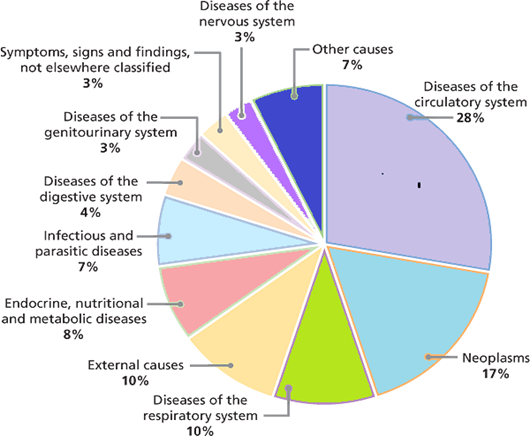Renowned Speakers

Desmond Johnston
Professor of Clinical Endocrinology UK USA

Teruyoshi Amagai
Mukogawa Women’s University Japan Japan

Theodora Mantzourani
Endocrinology & Diabetes, Nutritional and Preventive Medicine UK UK

Bernhard Mann
University of Koblence-Landau Germany Germany
Recommended Global Nephrology Webinars & Conferences
Asia Pacific & Middle East
EPIDEMIOLOGY-2023
About Conference
We cordially invite all researchers, students, and epidemiology professionals to attend this forthcoming epidemiology congress, where they will be able to participate in significant scientific conversations and contribute to future advances in the field of epidemiology and public health(WCEPH-2023). The "11th World Congress on Epidemiology & Public Health" which will be held October 25-26, 2023 Nova Scotia, Canada.
EPIDEMIOLOGY-2023 will focus on the most recent and interesting developments in all aspects of epidemiology, providing a unique chance for all epidemiology specialists from across the world to connect, network, and learn about new scientific developments.
This symposium will feature workshops, unique keynote sessions, and distinguished and known speakers who are experts in the field of epidemiology. Topics will include: Methodological advancements, Using epidemiology to address public health issues around the world Precision prevention and screening, big data, data science, and connected data New developments in research designs, innovations in data collecting and measurement, such as wearable devices, new technology and methods for candidate recruitment and retention are all examples of causal thinking in epidemiology. Evidence-based medicine and clinical practice are two terms that are often used interchangeably. Epidemics and other global health emergencies, evidence-based health policy Inequities and social epidemiology Genetic and molecular epidemiology is a branch of epidemiology that studies the effects of genetic and mole Patient and public interest in epidemiological studies, climate change
EPIDEMOLOGY-2023 Conference will feature timely keynote addresses, oral presentations, poster presentations, delegate perspectives, board talks, workshops, and exhibitions. Join us for two days of intense and fascinating discussions on current challenges and new developments in epidemiology and public health. We welcome you to submit research abstracts, papers, and e-posters to participate to the event and help shape it. Also welcome for presentation at the conference are high-quality research presentations detailing original and unpublished results of conceptual, constructive, empirical, experimental, or theoretical work in all fields of public health research.
You will have the opportunity to connect with and learn from our Business Partners, Exhibitors, and Sponsors in addition to the informative speakers. You will also get the opportunity to speak with them and determine whether or not they may benefit our practices. Then there are the networking breaks, which provide us the opportunity to get to know our peers and learn from them.
Target audience
- Epidemiologists
- Researchers
- Health care experts
- Cardiologists
- Psychiatrists
- Nutritionists
- Nurse practitioners
- Healthcare analysts
- Doctors
- Physicians
- Business delegates
- Young Researchers
- Professionals in media sector
- Professors
- Industrial Experts
- Management Bodies
- Medical Colleges and Hospitals
- Decision Makers
- Academic & Business Professionals
- Students
- Scientists
- Medical and Pharma Companies
- Associations, Societies, & Professional Bodies
Why to attend?
Epidemiology & Public Health Conference aims to bring together leading academic scientists, researchers and research scholars to exchange and share their experiences and research results on all aspects of Epidemiology & Public Health Conference. It also provides a premier interdisciplinary platform for researchers, practitioners, and educators to present and discuss the most recent innovations, trends, and concerns as well as practical challenges encountered(WCEPH-2023)and solutions adopted in the fields of Epidemiology & Public Health Conference. Empowering Epidemiology & Public Health professionals to collaborate, Innovate and help to shape the future of Public Health.
Who can attend?
Epidemiology & Public Health, Nutritional Health & Epidemiology, Genetic Epidemiology, pediatrician, Healthcare Nursing, Immunologist, Cardiologist, oncologist(WCEPH-2023), Neuroscience, Food Chemistry, Young researchers, Scientists, Young Investigators, Post-Graduate students, Post-doctoral fellows, Trainees, Junior faculty
Session &Tracks
Track 1: Reproductive, Perinatal & Pediatric Epidemiology
Reproductive Epidemiology includes distribution, determination of diseases in human population. The main topics which include are planning, adolescent sexual behavior, maternal morbidity and mortality family domestic violence, contraceptive safety and efficacy and population based reproductive health surveys. The main causes of perinatal epidemiology includes with pregnancy side-effects such as gestational diabetes, preeclampsia, preterm birth, birth defects, and also pregnancy outcomes. Pediatric epidemiology concludes about the disease conditions in children.
Track 2: Epidemiology and Cancers
The epidemiology of cancer is the study of the factors affecting cancer, as a way to infer possible trends and causes. The study of cancer epidemiology uses epidemiological styles to find the cause of cancer and to identify and develop bettered treatments. Epidemiology plays a crucial part in cancer forestallment and control by describing the distribution of cancer and discovering threat factors for cancer. Epidemiologic study designs include descriptive, ecologic,cross-sectional, and logical( cohort, case- control, and intervention) studies. Cancer epidemiology deals with the circumstance of excrescences in mortal populations. By studying cancer prevalence, frequence, and specific mortality, epidemiologists try to identify environmental and inheritable causes of cancer and therefore contribute to better opinion, treatment, and forestallment.
Track 3: Nutritional Health & Epidemiology
Nutritional epidemiology examines dietary and nutritional factors in relation to disease occurrence at a population level. Diet and nutrition play an important role in key causes of death, illness and disability like coronary heart disease, stroke, hypertension, atherosclerosis, obesity, cancer, osteoporosis, dental caries and gall bladder disease.
Track 4: Epidemiology and Sociology
Social epidemiology assumes that the distribution of advantages and disadvantages in a society reflects the distribution of health and complaint. It proposes to identify societal characteristics that affect the pattern of complaint and health distribution (WCEPH-2023) in a society and to understand its mechanisms. But epidemiology isn't just defined by its statistical outlook, nor is sociology or psychology. Epidemiology deals with medical knowledge itself. also, sociology and psychology deal primarily with the subject- matter of geste ( including geste related to health and complaint) of societies and individualities. Sociology could help public health interpreters understand how individual factors interact with structural variables to place some social, ethnical, and artistic groups at lesser threat for these factors than do others.
Track 5: Genetic Epidemiology
Inheritable epidemiology is the study of the part of inheritable factors in determining health and complaint in families and in populations, and the interplay of similar inheritable factors with environmental factors. inheritable epidemiology seeks to decide a statistical and quantitative analysis of how genetics work in large groups. inheritable epidemiology studies, depending on the ideal, encompass the most primary checks from the attempts to find family history in the circumstance of conditions to the most advanced checks including specific strategies by clinical trials in the forestallment of inheritable conditions.
Track 6: Healthcare Nursing
Nursing is a healthcare profession that focuses on the care of individuals and their families to help them recover from illness and maintain optimal health(WCEPH-2023) and quality of life. Nurses are distinct from other healthcare providers as they have a wide scope of practice and approach to medical care.
Track 7: Obesity & Health Disorders
Obesity is serious because it is associated with poorer mental health outcomes and reduced quality of life. Obesity is also associated with the leading causes of death in the United States and worldwide, including diabetes, heart disease, stroke, and some types of cancer.
Track 8: Cardiovascular Epidemiology
The Cardiovascular and Clinical Epidemiology track aims to develop creative and independent investigators who'll be suitable to unite effectively with bench and applied scientists to ameliorate complaint forestallment and treatment at both the clinical and population situations. Molecular genetics and advanced statistical styles, used for the study of heart conditions and proteomics styles can lead to implicit biomarkers that can identify threat of CVDs, which in turn, can ameliorate the vaticination of acute cardiovascular events. When a complaint occurs in a population, epidemiologists help us to understand where the complaint is coming from, and who it's most likely to impact. The information gathered can also be used to control the spread of the complaint and help unborn outbreaks.
Track 9: Disease Control Epidemiology
Epidemiology is the “ study of distribution and determinants of health- related countries among specified populations and the operation of that study to the control of health problems. ” — A Dictionary of Epidemiology. These accoutrements give an overview of epidemiology examinations, styles, and data collection. Disease Control When public health experts talk about controlling a complaint, they mean reducing the number of new infections, the number of people presently infected, and the number of people who come sick or die from a complaint in original settings. When a complaint occurs in a population, epidemiologists help us to understand where the complaint is coming from, and who it's most likely to impact. The information gathered can also be used to control the spread of the complaint and help unborn outbreaks.
Track10:Epidemiology & Public Health
Epidemiology is the foundation of public health and as the study of the “dissemination and determinants” of diseases or disarrays(WCEPH-2023) Within groups of people, and the development of knowledge on how to prevent and control them. Public health is composed of many fields of sciences and talents.
Track 11: Infectious Disease Epidemiology
Infectious disease epidemiology is the study of how and why infectious diseases emerge and spread among different populations. And Epidemiological methods are used to detect infectious pathogens, determine disease causality, and understand and the natural history of infections as well as ways to devise effective interventions for their prevention and what strategies can prevent or contain the spread of disease at the population level.
Track 12: Digital Healthcare & Women’s Health
Digital healthcare is a broad, multidisciplinary(WCEPH-2023) concept that includes concepts from a connection between technology and healthcare. Several healthcare technologies have been developed for the improvement of Women’s health also. One such includes FemTechs that focus on menstruator healthcare and increase accessibility to quality experts.
Track 13: Maternal, Infant & Child Health
The determinants that influence maternal health also affect pregnancy outcomes infant and child health. Racial and ethnic disparities exist in infant mortality and can be partly attributed to disparities in social determinants of health. Deaths happen in low-pay settings subsequently of condition that includes hypertension, infection, high blood pressure and complications during delivery. Maternal health is closely connected to infant survival.
Track 14: Sexually transmitted diseases (STD)
Sexually transmitted diseases (STDs), or sexually transmitted infections (STIs), are infections that are passed from one person to another through sexual contact. The contact is usually vaginal, oral, or anal sex. But sometimes they can spread through other intimate physical contact. This is because some STDs, like herpes and HPV, are spread by skin-to-skin contact.
Track 15: Oncology & Public Health
Oncology is an outlet of medicine that deals with the prevention, diagnosis and treatment of cancer. Tobacco use, alcohol consumption, unhealthy diet(WCEPH-2023), physical inactivity and air pollution are risk factors for cancer and other non-communicable diseases
Market Analysis
The global economic growth in 2019 is 3.0%, with emerging market growth of 4.6% and developed market showing expansion of 2.0%. All the countries undergo significant divergence in healthcare(WCEPH-2023) per capita in 2019. Many markets like Argentina, Iran, Mexico and Turkey are showing market risk in 2019 where as the expenditure per capita are high in China and Latin America with qualitative health care systems and high market revenue. A country has to make many establishments to form a base line for global economic performance and stable healthcare conditions such as by establishing health care policies, maintaining political issues and industrial growth. The global health care expenditure in 2017 was USD $7.724 and in 2022 it will be USD $10.059(EST.). North America USD $4.175, Western Europe USD $2.279, Asia & Australia(WCEPH-2023) USD $2.427, Latin America USD $437, Middle East & Africa USD $279 and Transition Economics USD $239.
Epidemiology Summit 2023 welcomes all the researchers, associations, exhibitors and attendees from all over the world to Canada. Canada is the country that is rapidly evolving social progress and economy due to which the milestones of healthcare have been achieved in very short period. It has a widespread system of healthcare.
In the year 2000, World Health Organization has ranked Singapore as 6th position regarding world’s health systems. For analyzing the data of epidemiology, various tools like mortality data, disease incidences tec. will be utilized. This assists in the assessments of various disease occurrences.

Delve Insight is a leading Business Consultant and Market Research Firm which has become the knowledge partner for biotechnology and pharmaceutical companies by providing competitive intelligence information which aids them to strategize and discover the target areas & potential customers for their products. The database of Delve Insight currently has over 3000 reports which elaborate the domains of Indication Insight, Mechanism of Action, Drug Insights and API Insights.
To Collaborate Scientific Professionals around the World
Conference Date October 25-26, 2023
For Sponsors & Exhibitors
Speaker Opportunity
Useful Links
Past Conference Report
Supported By
All accepted abstracts will be published in respective Conference Series International Journals.
Abstracts will be provided with Digital Object Identifier by












